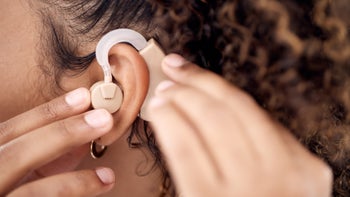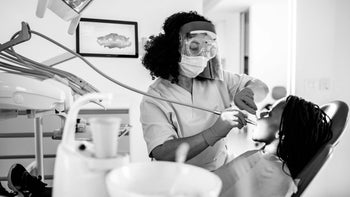
These 84 Items Qualify as HSA-Eligible Expenses for 2024
Key takeaways:
Health savings accounts (HSAs) allow you to use pretax dollars to pay for qualified medical expenses, which lets you save money on everyday healthcare items.
Your HSA can help you cover qualified emergency, dental, vision, and family medical expenses.
The CARES Act has expanded the list of HSA-eligible items to include over-the-counter purchases such as allergy, cough, and cold medications.

A health savings account (HSA) is a tax-exempt account set up to offset the cost of healthcare. You must have a high-deductible health plan to open an HSA. Every dollar that you contribute to an HSA can pay for eligible medical expenses. When you withdraw money from the account, you won’t have to pay taxes on the funds as long as they are used for HSA-eligible expenses.
Below, we’ll explain how to use an HSA and provide you with 84 HSA-eligible expenses for 2024.
How do you use an HSA?
When you open an HSA, you typically contribute pretax dollars to the account. If you contribute to your HSA with after-tax dollars, you’ll receive a deduction when you file your tax return. As long as the money is used for eligible medical expenses, you won’t have to worry about paying taxes on it later.
Make sure you log in and review your HSA account details frequently. This will help you determine your HSA balance and allow you to view status updates for any expenses you’ve submitted.
You may also receive an HSA benefits card from your plan administrator to pay for eligible expenses. Before you spend your HSA funds, you should check with your HSA administrator to make sure your expenses are eligible.
What can you buy with your HSA?
You can use your HSA to purchase a wide range of qualified medical expenses that are not covered by your health insurance. Expenses that qualify for the medical- and dental-expense deduction meet the criteria. The main purpose of the expense must be to ease or prevent a physical or mental illness.
The IRS outlines qualified medical expenses here.
Below are common categories of eligible expenses.
1. Common or routine medical expenses
Copays for prescriptions and office visits
Crutches
Dental care (See below)
Prescription medications
Vision care (See below)
Wheelchairs
X-rays
Annual exams
Baby ointment
Breast milk storage bags and bottles
Breast pump
Diaper-rash cream
Nursing pads
Pedialyte
2. COVID PPE supplies
The IRS issued Announcement 2021-7 to help stop the spread of the coronavirus. This added personal protective gear used to prevent the spread of the coronavirus as a qualified expense. It also made the following items HSA-eligible expenses:
Masks
Sanitizing wipes
3. Menstrual products and OTC medications
The Coronavirus Aid, Relief, and Economic Security (CARES) Act also added some other medical expenses to the list. The new items added were menstrual products and over-the-counter medications.
The following 18 items are examples of now-qualified medical expenses:
Band-Aids
Breathing strips
Heartburn medications
Ibuprofen
Liners
Menstrual cups
Pads
Period panties
Sleep aids
Tampons
Thermometers
4. Family planning products
Your HSA can also pay for family planning healthcare expenses such as:
Contraceptives
Infertility treatments
Ovulation monitors
Tubal ligation
5. Emergency medical expenses
These eight emergency medical expenses may also be covered by your HSA:
EMS devices
Medical records fees
Urgent care services
6. Mental health expenses
Studies show that almost a quarter of U.S. adults experienced a mental illness in 2021. If you need to pay for mental health expenses out of pocket, your HSA may cover the following:
Mental health counseling
Transportation to mental health appointments
7. Dental care
HSA holders can use their account to pay for care given by an orthodontist, dental hygienist, or a dentist. This includes but is not limited to the following eight dental care items and services:
Dental implants for a restorative procedure
Dental X-rays
Orthodontist visits
Teeth whitening is not covered, since it is considered a cosmetic dental procedure and not health-related.
8. Vision care
Before scheduling your next vision appointment, it’s important to understand which expenses are covered by insurance. You can typically use your HSA to cover out-of-pocket payments for the following eight vision expenses:
Contact cleaning solution
Contact lens cases
Eye drops
Eye exams
Eyeglass case
If you are visually impaired or blind and have a guide dog, here are some additional HSA-eligible expenses:
Buying a guide dog to assist with daily activities
Training a guide dog
Visiting the vet
Are dependent care expenses HSA eligible?
If you have a dependent care flexible spending account (dependent care FSA), you can use the funds in the account to pay for qualified child and dependent care expenses tax free. The IRS has specific criteria that you must meet for eligible expenses, including the expenses being necessary to allow you to actively look for work or allow you to work.
Eligible expenses may include the following if they meet certain criteria:
Adult daycare
Babysitting
Before- and after-school care
Day camp
Although you can contribute to a dependent care FSA and HSA at the same time, you cannot use the funds in an HSA for dependent care expenses.
WHAT TO READ NEXT
Popular stories this week
Are all qualified medical expenses HSA eligible?
No. For example, insurance premiums may not always be considered a qualified expense. You can only use your HSA to pay for insurance premiums if they fall into one of these four categories:
Healthcare continuation coverage (coverage under COBRA)
Healthcare coverage while receiving federal or state unemployment
Medicare and other health coverage if you are 65 and older
An example of an insurance premium you cannot claim is Medicare supplemental insurance, such as Medigap.
What common healthcare expenses are not HSA eligible?
Preventative care that is not prescribed by a healthcare professional is not always HSA eligible. Some examples of common healthcare expenses that fall into this category are:
Vitamins and nutritional and herbal supplements for general health
Personal hygiene items such as toothpaste and deodorant
Weight-loss programs for general health or well-being
But there is an exception. If you have a doctor’s note — also called a letter of medical necessity (LOMN) — you may be able to buy items that typically wouldn’t be HSA eligible. The LOMN briefly outlines your condition and why you need a specific product or service.
The following are three expenses that may qualify for the exception. These items may qualify if they are used to treat a medical condition. Before you purchase an item, you should check with your HSA administrator to determine if your expense is HSA eligible with a LOMN.
Health clubs
Weight-loss programs
Do expenses for spouses and dependents go toward your HSA?
You can pay for qualified medical expenses for your spouse with your HSA. You can also pay for the medical expenses of any dependents claimed on your tax return with your HSA, as long as they meet the following the criteria:
The dependent cannot file a married filing jointly return.
Their gross income cannot exceed the annual threshold.
You and your spouse cannot be a dependent on someone else’s return.
What are the HSA limits for 2024?
Each year, the IRS raises the HSA contribution limit to keep up with inflation. The 2024 contribution caps increased by $300 for individuals and $550 for families.
The table below shows the HSA contribution limits based on your age and coverage type. If you are 55 or older, you can contribute an extra $1,000 to your HSA. This is called a catch-up contribution. So people who meet the age requirement can contribute up to $5,150 as an individual or $9,300 for a family plan in 2024.
Year | Individual | Family | Catch-up contribution (55 and over) |
2024 | $4,150 | $8,300 | $1,000 |
2023 | $3,850 | $7,750 | $1,000 |
Source: IRS
To take advantage of the 84 HSA-eligible expenses mentioned above, you must have funds in your HSA. The more money you contribute every year, the more money you’ll be able to invest in assets that can boost your account balance. The growth in your account can provide you with more money to help offset the rising cost of healthcare. It is important to capitalize on contributing to your HSA to prepare for future healthcare costs.
The bottom line
You can use your HSA to pay for healthcare costs such as emergency, dental, and vision expenses. The CARES Act has expanded the list of HSA-eligible items to include over-the-counter purchases, making the costs of everyday healthcare tax deductible.
Confirm with your HSA administrator which expenses are eligible. You’ll also need to determine if you will need a letter of medical necessity from a healthcare professional.
References
Internal Revenue Service. (2023). Face masks and other personal protective equipment to prevent the spread of COVID-19 are tax deductible.
Internal Revenue Service. (2023). Instructions for Form 2441 (2023).
Internal Revenue Service. (2023). Publication 502 (2023), medical and dental expenses.
Substance Abuse and Mental Health Services Administration. (2022). Key substance use and mental health indicators in the United States: Results from the 2021 National Survey on Drug Use and Health.
This article is solely for informational purposes. This article is not professional advice concerning insurance, financial, accounting, tax, or legal matters. All content herein is provided “as is” without any representations or warranties, express or implied. Always consult an appropriate professional when you have specific questions about any insurance, financial, or legal matter.




























